How to Make Your Facebook Account More Secure
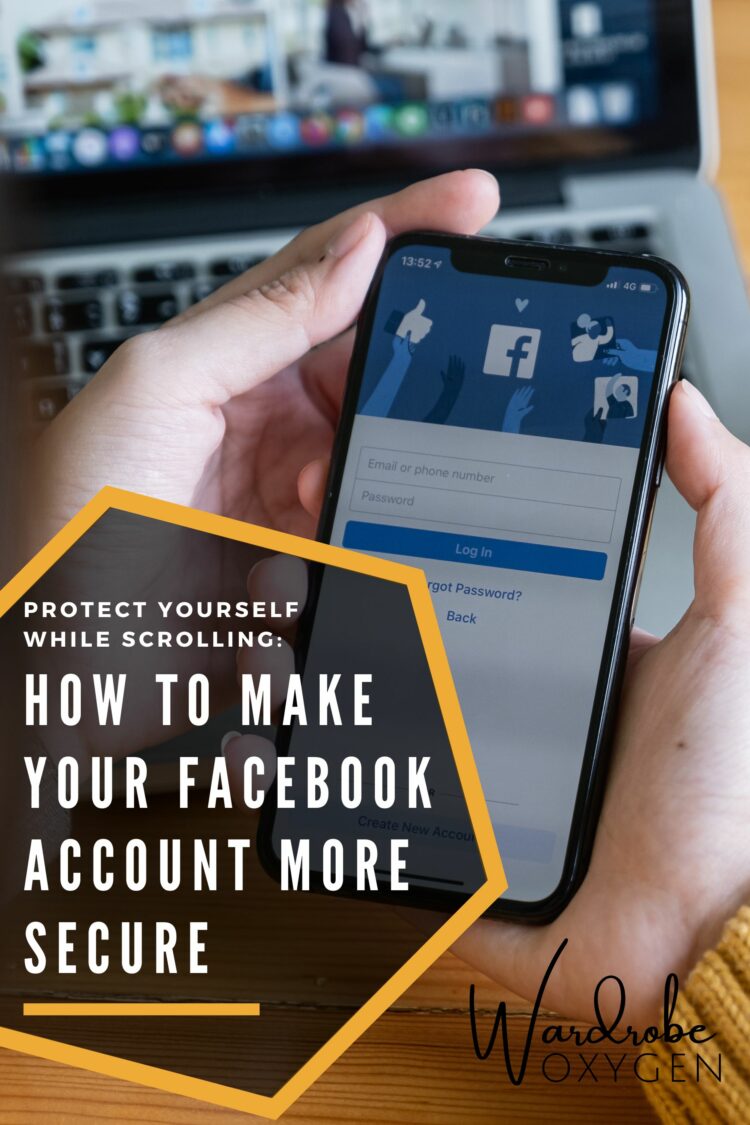
I launched a private Facebook group for the Wardrobe Oxygen community. While I have managed many Facebook pages, I have never built or administrated a group before. The information provided to an admin when requesting membership to a Facebook group floored me… but then I realized the information I am provided isn’t much different from what the public or a friend of a friend can find on their own. It inspired me to share tips with the Wardrobe Oxygen community on how to make your Facebook account more secure.
How to Make Your Facebook Account More Secure
This post was originally written in 2018, but Facebook and its parent company Meta are constantly changing and updating tools, practices, and terms of service. I wanted to revisit this topic to ensure that in 2024, you still have a secure Facebook account and are only sharing what you want to share with the audience you have chosen.
Why Should I Care About Making My Facebook Account Secure? I’m Nobody!
Whether you have five friends or 5,000, whether you’re famous or a recluse, privacy is important for many reasons:
- Identity Theft: In this day and age, people’s identities are being stolen every minute. Lock down your Facebook and provide fewer details to make this happen.
- Facebook isn’t an Individual Account but a Web: You may not be interesting to a stranger, but maybe your brother or daughter or the company you work for is. Having your profile open lets strangers gather more information about the people and organizations you are connected to. Protecting your account protects those you care about.
- Protecting the Future: Maybe you will want to change jobs. Maybe you'll be involved in a legal issue. Maybe you’ll start dating again. Maybe your child or spouse or relative will want to apply for a job or a government clearance or hit instant fame. The point is, don’t leave yourself open for individuals to find your information, use it, or abuse it.
- It’s Just Smart: When I used to interview people for my old job, I’d Google them. Did they have an up-to-date LinkedIn profile with recommendations from colleagues? Good. Did they have a wide-open Facebook page where I could see them play games during work hours and share Minion memes littered with apostrophe abuse? Not good. An open Facebook page is as naïve as having your password PASSWORD. And if your Facebook page is wide open, it tells scammers you’re naïve. So lock it up.
It's not just future employers who will Google you. It's the ex-girlfriend of your son, the woman you met at a baby shower, your new neighbor, the salesperson at a boutique who liked your necklace or hated how you spoke to her. It's random strangers who saw your interview on the local news or read your opinion piece in the local paper or saw you made a donation to a certain politician.
Your info is out there, and Facebook has really good SEO (search engine optimization) so when you search a name, a person's Facebook account comes up near the top of searches. Also, it is super easy to drop a name in the search field on Facebook and find any account with your name or a similar name. The tools are there to find your Facebook account; assume they are being used and not to become your friend.
Since this article was inspired by all I could see when folks applied to join my Facebook group, I want to start with what I and other admins can see. This way, you may be even more inspired to lock down your Facebook account and make it more secure.
What is Shared When You Join a Facebook Group?
There are two types of Facebook Groups – Public and Private. Back in 2018, there were three types of groups, but Facebook is constantly evolving. Visit this link provided by Facebook or see the chart below to find out the differences between these groups and what is shared:

For the Wardrobe Oxygen Community group, the setting is Private. If a group is Private, it can never choose to switch to be Public. Content cannot be found on Google or another search engine. Group content can only be seen in the Facebook feed of members.
With a Private group, you can choose whether or not other groups or business pages can join. I have set settings in my group that groups and pages can NOT join. As someone who manages Facebook pages, I know that dozens of folks can have the login or be an admin of pages and groups so you really have no clue who is behind that screen name.
Private groups can choose to either have any member approve new members or only admins and moderators. I decided to only have admins and moderators approve new members so I can see who is joining. I also created a few questions to answer to better know who is requesting to join and to prevent bots from applying.
Private groups like the Wardrobe Oxygen community can be visible (anyone on Facebook can find it and request to join) or hidden (can only find it if invited or a member). Wardrobe Oxygen's Facebook group is visible; this means anyone can find it and request to join.
What Your Profile Looks Like to a Facebook Group Admin
When you request membership to a group, Facebook shares a summary of your profile. What is in that summary is determined by your personal privacy settings. Here is an example of what one sees when you ask to join a group:
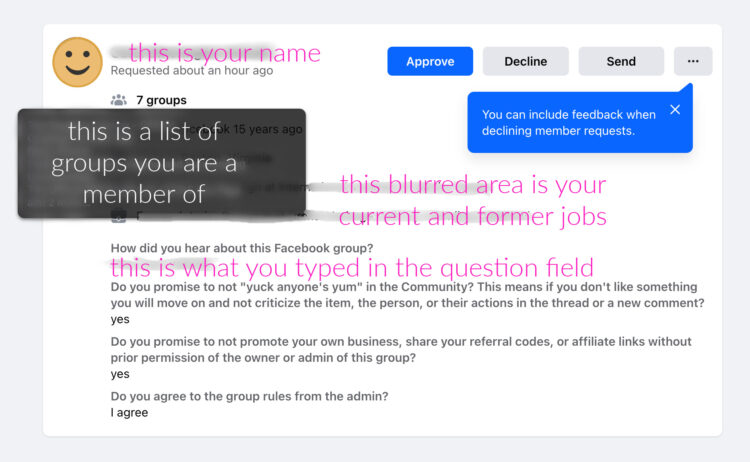
You're possibly sharing your full name, your profile photo, the date you joined Facebook, how many friends you have, how many groups you are in (with a hyperlink to see those groups), any groups you have in common with the person approving you (with a hyperlink to see those common groups), and any photos beyond your profile photo that you have made public (previous profile photos, photos added to your page’s Intro).
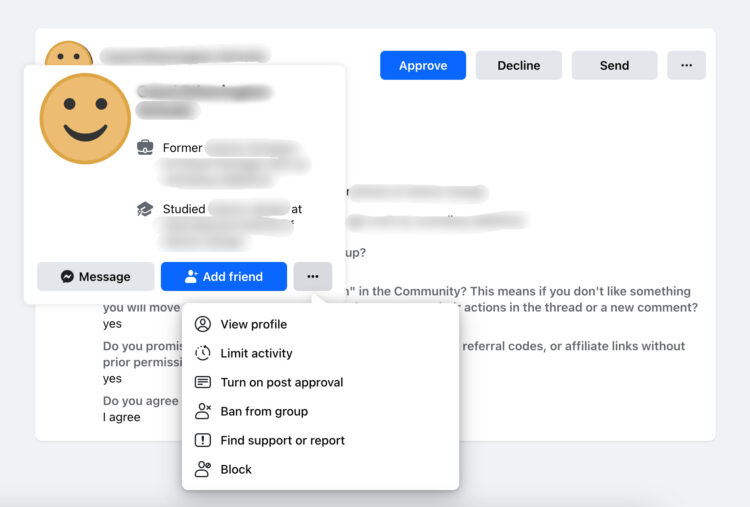
Depending on your security settings and how much information you provide Facebook, you may also be sharing your title and where you work, previous places of employment, your major and at what college/s, what high school you went to, the city and state you live in and previous places you’ve lived.
How Facebook Admins Use Your Profile
This is cool because I can see what kinds of people you are. Oh look, we’re in the same group, we live not too far away from one another, how cool you’re joining from across the globe, you’re in your high school reunion group that shares the year so I know we’re around the same age, aww look at that cute doggie in your photo, wow a lot of Wardrobe Oxygen Community members love their InstaPot! But then… that’s a lot of information to be sharing not only with me, but most any other stranger on the planet.
With many who requested to join the group thus far, I've been able to figure out your age, where you live, your political affiliation, your religion, where you went to school, where you work, whether you’re in a relationship and who with, and sometimes even who are your relatives.
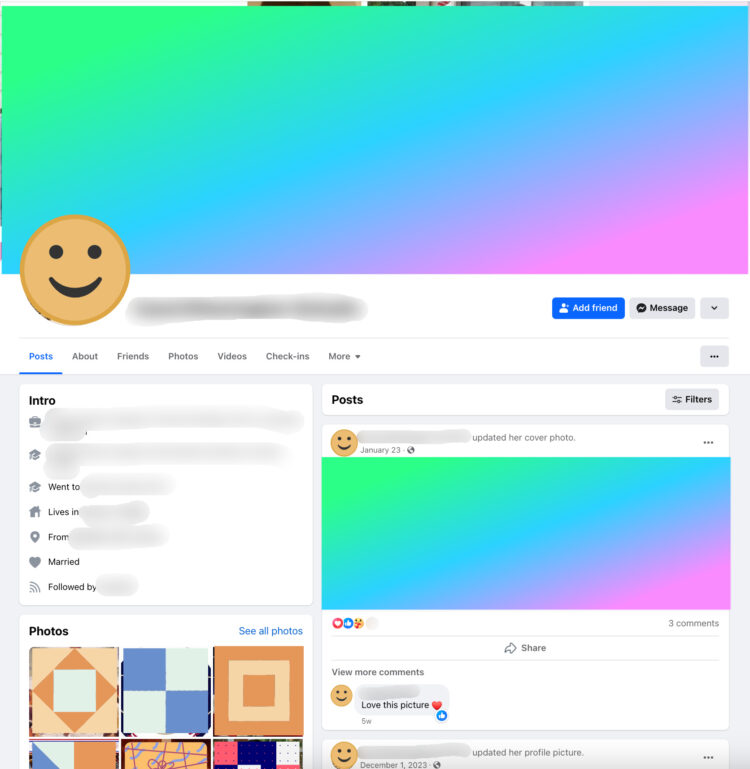
If I click on the link to your profile, depending on your security settings, I can see even more – charities you have supported, games you play on Facebook, concerts and other events you plan on attending with date and location, and personal information shared in the comments of photos from Christmas Day.
Scary, huh?
Well, I’m going to help you lock down your Facebook page so you can still play games, and share photos, and keep up with your friends and family without that creeper or gossip hound or bored stranger in another country or potential new employer from digging through your personal info.
How to Lock Down Your Facebook Account
I don't want to tell you what to do, but it makes sense to lock down your Facebook account. This not only keeps you more secure, but also provides security to your friends and family who are connected to you on Facebook. These are simple steps to protect yourself and your loved ones on Facebook:
Step 1: Perform a Facebook Privacy Checkup
On desktop, click your profile photo circle in the upper right-hand corner. On the Facebook app, do the same but your profile photo is in the lower right corner.
- On desktop, scroll down and click on “Privacy Checkup”
- On the app, scroll to “Settings & privacy” and choose “Privacy shortcuts”
Below is a screenshot of what this looks like in the app in Spring 2024. Whether you are on a laptop or the app, choose to perform the Privacy Checkup. I recommend you go through this process every few months since Meta/Facebook is constantly changing.
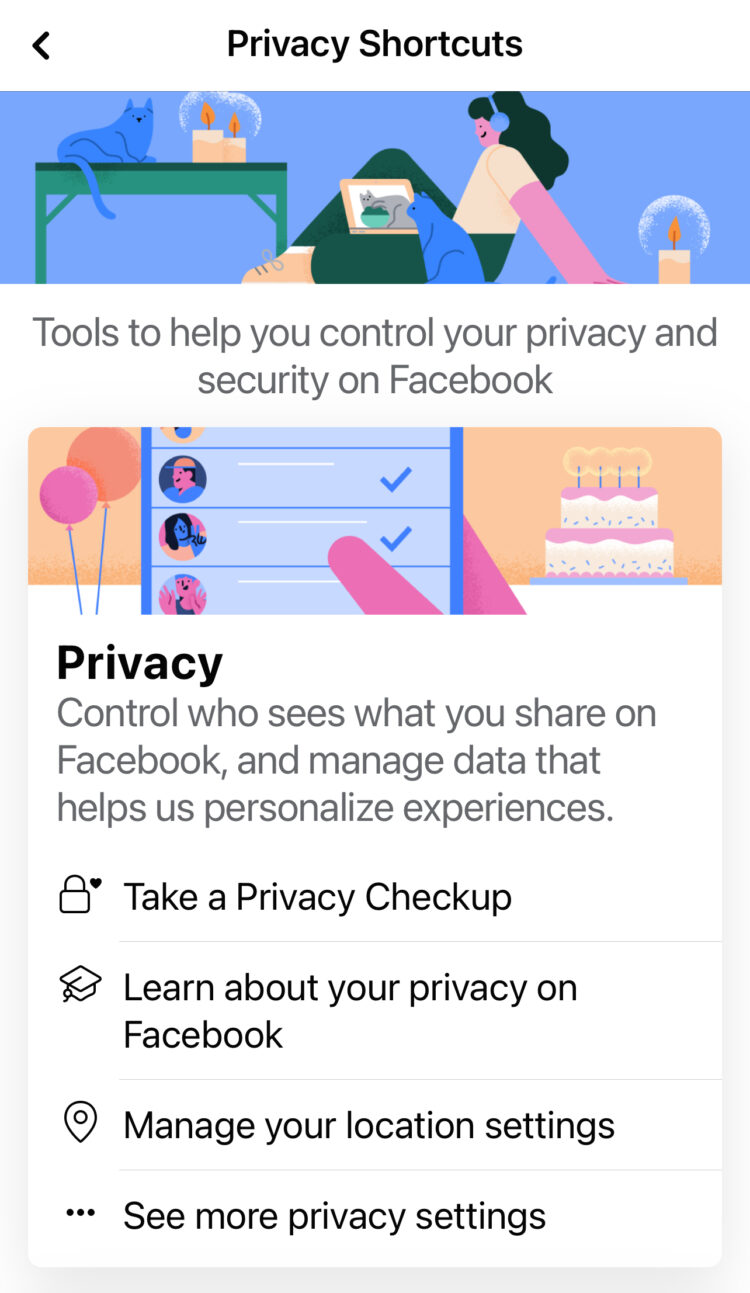
The new screen will have five boxes showing the different categories you can review and edit. It will also show how long it has been since you last edited the settings for that category (if you haven't changed them, even if you have reviewed them, it will show the last edited date). Below is a screenshot of what it looks like on a laptop; the app screen is exactly the same, just vertical to fit the phone screen:

I'll break down the five categories to update, with a few of the settings I have chosen and why. I may be more of a public figure, but that doesn't mean my personal data is more valuable than yours. I hope through reading this you will see how your Facebook data may be used in nefarious ways and why you may wish to lock it down.
Who can see what you share
This is where you determine who can see personal data such as phone numbers, email addresses, birthday (day and year), who you are friends with, what pages you follow, who can see the content you share on your profile and in stories, who you have blocked (and how to block more individuals), and if you wish to limit old content you may have shared.
- Remember that when folks can see who you are friends with, they can see those who have your same last name, mutual friends, and all your friends and family who haven't locked down their profile and may have publicly available photos and posts where you are tagged.
- You can create custom lists for audiences. You can have family only see your friends list, a custom list of friends and family see your birthday, only coworkers see your phone number, etc. It may be time-consuming, but it's better than some sketchball knowing your full name, your mother's maiden name (because she's your friend on Facebook), your birthday, how you're in the “Residents of Zip Code 12345” Group, and the name of your pet because your cousin who has a public profile tagged and photo of you holding your furbaby with the caption, “My cousin with her dog, Fluffy.”
- Facebook defaults these audiences to Public, so if you have never done this process, do it ASAP.
How to keep your account secure
This section is where you can change your Facebook password and change your login alerts if someone logs in from an unfamiliar device or location. Please do not use the same password at Facebook and another place, and make your Facebook password really complicated, and change it often.
We have all had a friend get their Facebook account hacked. Protect yourself with a really convoluted password, and have your browser, password locker, or phone save the password on your behalf. Letting these tools save your password is far safer than having a password you can easily remember.
How people can find you on Facebook
Here you can decide who can send you friend requests, whether Facebook can recommend your profile to others based on personal info, and if search engines can feature your profile. This may seem innocuous (oh, my high school friend and first boss can find me, a reunion would be so nice!) but this is how sketchballs can find you.
- Personally, I only allow friends of friends to send friend requests. It is possible to message folks who aren't a friend of a friend, so if someone really wants to be my friend, they can message me first. This has drastically reduced the number of fake accounts that send requests. I see friends sharing that an account pretending to be them is out there befriending folks and I never got the friend request because I have chosen this setting.
- Whether you like it or not, your profile will be recommended to others to like or follow. Sharing your phone number and email will ensure you will be recommended to those in your Contacts.
- My personal thought is that if someone has your contact info, they're already your friend. I don't need my therapist, the moving company who texted me that they're on the way, the fellow members of the nonprofit I support, and my kid's teachers ask to be my friend on Facebook.
- Finally, having your Facebook profile show up in Google and other search engines is a personal choice, but again it will be found first page when anyone Googles you. You may prefer to use that first page of Google for your LinkedIn profile, your personal website, when you were quoted in a newspaper, reviews of your exhibit, the article you wrote, etc.
Your data settings on Facebook
This is where you can find what apps and websites have permission to connect to Facebook to log you in. Maybe you canceled your membership, maybe you don't use that app anymore, maybe you want Facebook to have less data on you… here's where you can disconnect those connections.
Here you can also choose who sees your location when using Facebook. Personally, I don't want anyone to know where I am when using Facebook and have that set to “never.” I can still tag where I was when sharing photos from a previous vacation or a throwback photo from high school or college, but neither Facebook nor anyone on the platform can know where I am this minute.
Your ad preferences on Facebook
Whether you like it or not, Facebook will serve you ads. And Facebook will take data of what pages and groups you like, what you heart or thumbs up, how long you spend in different groups, how long you linger on something in your feed, and use that to send you targeted ads.
In this section, you can control whether Facebook also uses your relationship status, employer, job title, and education to further tailor those ads.
Here, you can also decide whether others can see that you liked a certain page or said you will be attending a certain event. This is a personal choice, but this means your mother in law, your ex, your boss, and that girl from 8th grade you haven't seen since 8th grade all know your hobbies, passions, guilty pleasures, and social calendar.
Check all Privacy Settings
To ensure you have covered all privacy settings you can also visit https://www.facebook.com/settings/?tab=privacy where the Privacy Checkup is summarized but also the right sidebar has options for controlling who can post on your timeline, who can tag you and being able to approve tags before they show up on your timeline (very helpful for those hacked accounts promoting Ray-Ban sunglasses that tag a kazillion people). Some of the other options in that right sidebar deserve a closer look:
Business Integrations
Here you can also see what business integrations you may have beyond apps using Facebook to log in. As a blogger, I have dozens of platforms that connect to my Facebook to see my business analytics but these platforms often go out of business, get bought by other companies, or I choose to not work with them any longer. I go in here regularly to disconnect such platforms to keep my account safe.

Off-Facebook Activity
Woah, Nellie, this one is going to blow your mind. Been doing some online shopping? Did you go to check prices of a flight? Visited a blog, a news site, or searched reviews for a certain product? Facebook knows.
Facebook knows what you clicked on, how you logged in, and if you made a purchase or even a donation. It knows if you put an item into your virtual cart but you didn't click “buy.” It sees you when you're sleeping, it knows when you're awake, and it knows more than the websites providing that data because I had no idea my blog was giving Facebook so much data!

Anyway, you can go in and clear the data and disconnect the connections. You can also download any activity data. Just a heads up that this can be a seriously deep rabbit hole, so have time before you delve in. But this is a great exercise to see how you leave little crumbs of data everywhere you go on the internet and megacorps like Facebook see them, gather them, and use them in a range of known and unknown ways.
Facebook is a “free” platform. Free is in quotes because your data is the price for entry. Facebook doesn't need you to pay a membership because your data is worth way more. It is used to tailor ads, to improve AI, to make the platform more appealing/addictive so you spend more time on it, trust it more, and use more Meta products.
Facebook is part of Meta, a for profit company that has its hands in way more than a place to connect with alumni, neighbors, family, and friends. Just as Amazon went from a place to buy books to a major part of our lives and world, Meta is doing the same. You're funding them not with overnight orders of gadgets and groceries but with your data. Take the time every few months to review your privacy settings and at least control how that data is being shared to those outside of Meta.
The tips in this post are just the basics. And needing to completely overhaul 99% of this post since 2018 is proof of how Facebook is constantly changing their settings. What I shared in this post may be old information in just a couple months’ or even weeks’ time. I am also not a Facebook expert, this advice is just from personal experience. If you have additional tips on securing your Facebook account, please share them in the comments!

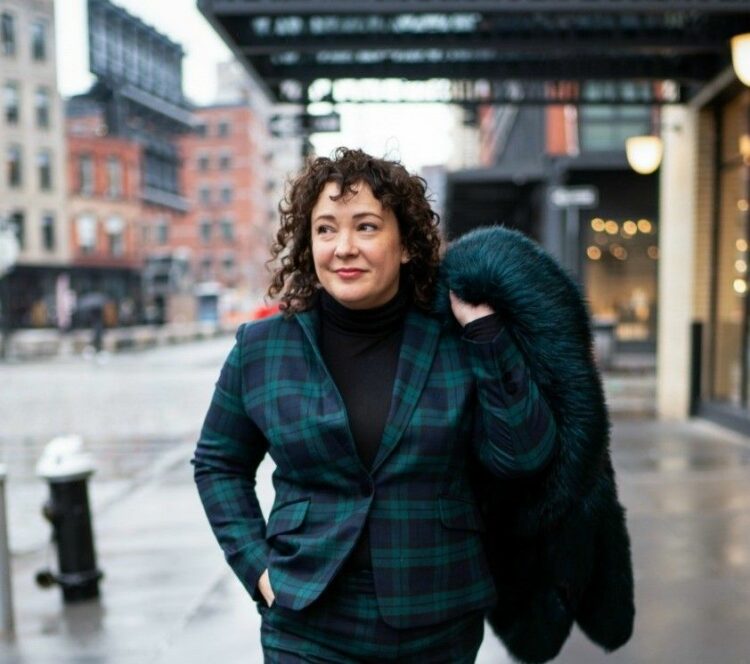

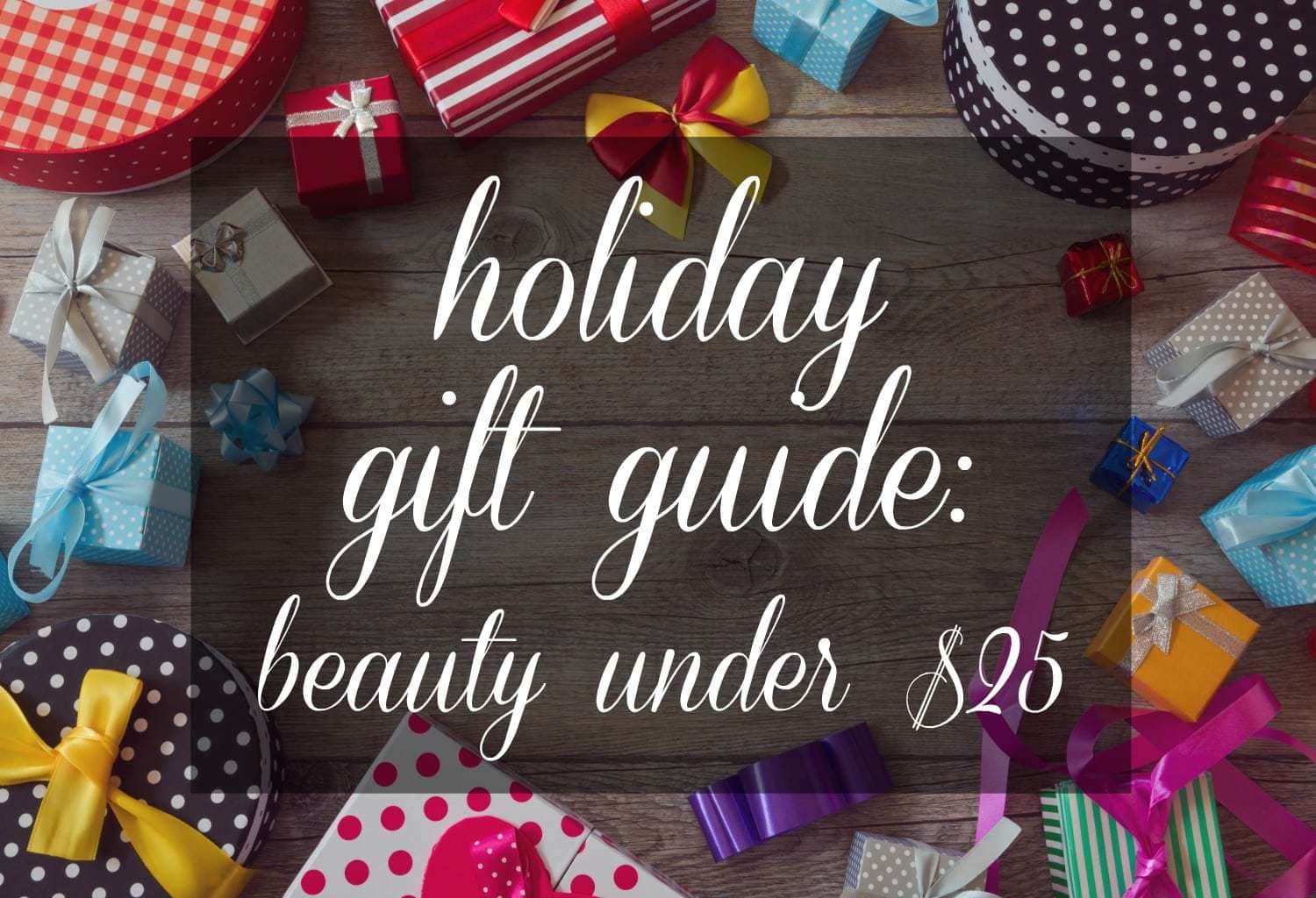
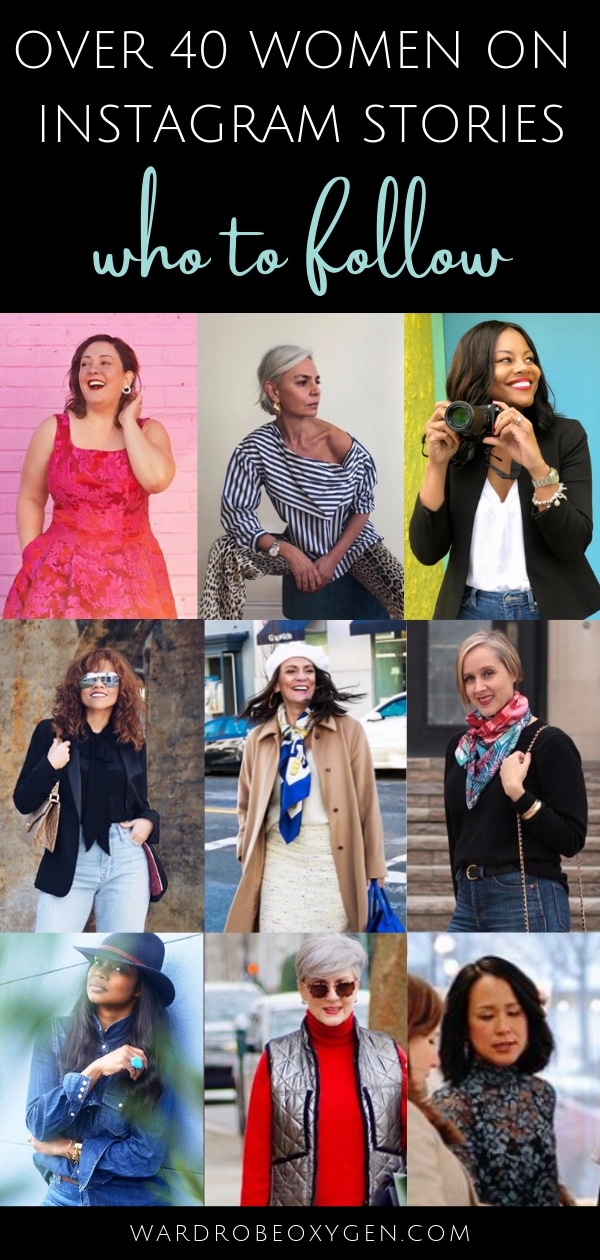
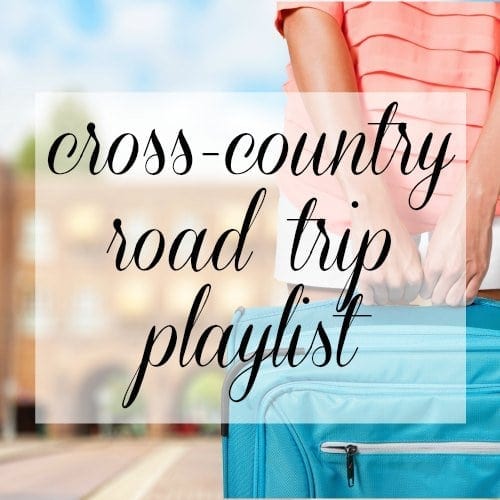

Wow. Great post. I’m sharing this with some of my family members who need it badly!
Interesting post! I looked through all the people I’ve blocked in the past, and mostly remembered why I’d blocked them.
This is great info and a reminder to go back to re-check my settings. I was appalled the first time I did this and realized what the entire world could see.
Thank you, this is really helpful! Happy new year!
This was a really good clear walkthrough. I did mine by logging in via safari on my iPad, and was able to do most of the security things you listed above, even though it looks a little different on iOS. It was also a good opportunity to tweak my ad preferences (unfortunately none isn’t an option! But at least I could hide the most annoying ones and categories); and filter the newsfeed to display all the things I’m most interested in first; and review pages/friends Iists etc. Thanks for the great post!
Thanks for taking the time to write this Alison! It’s very helpful.